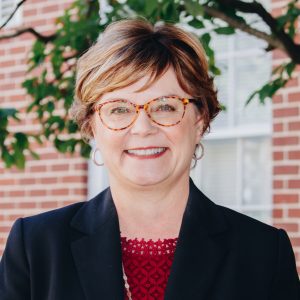
The Minneapolis Convention Center had been scheduled to host the 2020 General Conference. Photo courtesy of Meet Minneapolis.
By Thomas Lambrecht –
News that General Conference 2020 has been postponed until sometime in 2021 has thrown the denomination into a temporary limbo regarding a future amicable separation.
Beyond question, this was the right decision. With the spreading coronavirus making travel all but impossible, holding General Conference would also have been impossible. We need to prioritize the lives and health of all concerned. Right now, our focus needs to be on ministry in our various communities, not addressing internal denominational issues.
We join our hearts and prayers with all those who are suffering from COVID-19 and with the people on the front lines of this destructive pandemic. As followers of Christ, we are being called to pray fervently, imagine new ways to remain connected with our local churches under the shadow of “social distancing,” and minister with compassion to those in need.
Dealing with Disappointment
As United Methodists who are concerned about a faithful future for a Wesleyan witness, we must also think through the implications of postponing General Conference.
Probably the greatest reaction to postponing General Conference other than concern for those suffering or threatened by the pandemic is a sense of disappointment. Many were looking forward to resolving the denominational conflict that has somewhat paralyzed the denomination, in order to move forward in a positive direction.
Traditionalists are eager to move into a more spiritually unified, theologically traditional denomination that can reconfigure itself to be more nimble and effective in ministry. Progressives are eager to rid the denomination of what they perceive to be unwarranted discrimination against LGBTQ persons. Both groups were primed and ready to support the Protocol for Amicable Separation. Many others are ready to be done with the conflict, regardless of their personal views. All will have to wait an additional year or more to move toward their preferred future.
The postponement of General Conference does not change the fact that our church is still in an irresolvable conflict. When the pandemic is over, the conflict will remain. In that sense, the momentum toward amicable separation will continue. The only way to end the conflict will still be to allow different groups in the church to go their separate ways.
In light of that fact, it would be inadvisable for local churches and clergy to prematurely separate from the denomination. There may be situations where local churches or clergy in a hostile and intolerant annual conference need to separate now for their own spiritual health and the wellbeing of their ministry. But for most, it will be possible to continue in the current circumstances for another year. The pandemic, postponement, and stock market volatility may necessitate a postponement of some clergy from their plans to retire from active ministry. Where possible, it would be helpful for long-tenured clergy to continue serving their congregations to help them through this time of waiting and transition into a new reality in 18 months.
The delay in General Conference can actually be helpful in some ways. Both a new traditional denomination and a new “liberation”/progressive denomination can use this extra time to continue developing their structure. The fast approach of General Conference this May was forcing both groups to move more quickly than they were perhaps comfortable moving in trying to develop the skeleton of a new denominational structure.
Having more fully fleshed out options for whatever new denominations will form will benefit all United Methodists as we move toward decisions on alignment after General Conference.
Traditionalists gather
A group of nearly 30 diverse United Methodist Church bishops, clergy, and laity – men and women, African-American, Asian, Caribbean, Caucasian, and Hispanic persons – from every U.S. jurisdiction, and three central conferences met in March in Atlanta to explore ways to reach consensus about the shape of a new traditional denomination.
The meeting was convened by the Rev. Keith Boyette (president of the Wesleyan Covenant Association – WCA), Bishop Scott Jones (Texas Annual Conference), and Mrs. Patricia Miller (executive director of The Confessing Movement) in response to the “Protocol of Reconciliation & Grace Through Separation,” which proposes a denominational separation plan.
Following the Atlanta gathering, 28 of the attending leaders signed a vision document for a proposed new Wesleyan Methodist movement and released the following statement:
“Although no one yet knows what the United Methodist Church will look like following the [2021] General Conference, it is clear that our denomination is no longer unified in its beliefs. Therefore, some sort of separation is probable. As such, we felt it necessary to begin conversations about what the new traditional expression of Methodism might look like.
“This gathering in Atlanta represents one conversation among many currently going on in the life of the United Methodist Church. A statement was drafted, and ideas were shared about how to proceed if the Protocol is adopted.” The drafted statement and vision document, along with a full list of signatories, is available at NewWesleyanDenomination.com.
The group that gathered in Atlanta was broadly representative, focusing on three groups: renewal and reform group leaders, traditionalists who are not part of a renewal group, and bishops, including three bishops from central conferences. Many people assume that a new traditionalist Methodist denomination would be “the WCA Church.” However, this broader group gathered to demonstrate that is not the case. The WCA is one stream that will feed into a new denomination. Other streams, including whole annual conferences, will also feed into the new church. Only the inaugural General Conference of a new denomination, including representation from all traditionalists wanting to join it, will finally determine the structure and polity of the new church.
“What a beautiful thing,” said the Rev. Dr. Jan Davis, Senior Pastor at Central UM Church in Fayetteville, Arkansas, “to be in a room with broad diversity, people from all over the world, from many different perspectives, yet we were solidly of one mind in our mission for a new denomination – proclaiming Jesus Christ as Lord! It brought me to tears.”
Davis, a woman who leads one of the fastest growing large UM churches in the U.S., and was one of the participants who has never aligned with any of the renewal and reform groups, added, “I want to be part of a clergy covenant that shares my core beliefs – a high Christology, the Lordship of Jesus Christ, and the authority of Scripture. I want to be in a system that holds one another accountable for preaching and teaching basic Christian doctrine and beliefs.”
The vision adopted by the group inspires a commitment to a new Wesleyan way of doing church:
“God calls us to embrace a new day as the people called Methodists. Established in the faith entrusted to us by our forbearers, we discern the Holy Spirit reviving the Methodist movement in a new work. We are committed to God’s vision given to our predecessors ‘to reform the continent[s] and spread scriptural holiness over the lands.’
“If the [2021] General Conference adopts the Protocol legislation, with one voice and a spirit of humility we intend to form a global Wesleyan movement committed to the Lordship of Jesus Christ, the authority and inspiration of the Scriptures, and the work of the Holy Spirit in conveying God’s truth, grace, renewal, and sanctification to all people who repent and believe.
“We are committed to being a people who covenant together around time honored core doctrines, ethics, and mission. We aspire to be a covenant community, watching over each other in love. We long to reclaim the Wesleyan genius of mutual accountability throughout our connection.
“We will be a church that is truly global in nature, fully welcomes people of various ethnicities and women into every level of ordination and leadership, and is characterized by joy. We will be committed to the Christian faith as expressed for 2,000 years, the four-fold movement of grace, compassion, and a passionate desire for people to experience a personal relationship with Jesus Christ as Lord and Savior. We will inspire growth in discipleship, holiness, and a commitment to service, mercy, and seeking God’s justice.”
The proposed vision centers on “engaging people in lifelong, intentional formation as disciples” through spiritual disciplines and “communion and accountability with one another in the Body of Christ.” A church “deeply committed to prayer and dependence upon the Holy Spirit” would “reach out to the world at its points of deepest need through ministries of mercy and justice.”
The group is committed to “Episcopal appointment of clergy that practices true open itinerancy with enhanced models of consultation with congregations and clergy, ensuring equity in pastoral appointments for women and persons of varying ethnicities.” There was much discussion about the need to overcome historic patterns of racism and sexism in the church, and particularly in the appointment process.
The new church would be “passionate about planting new churches, revitalizing existing churches, and apostolic ministry” – going into uncharted territory with the Gospel and replanting a traditionalist Methodist church in parts of the U.S. and the world that currently lack it.
The group pictured a denomination that is a “nimble and less bureaucratic institution, continuously led by the Holy Spirit,” which is “more movement than institution.” At the same time, the church would “embody our global nature in every aspect of doctrine, relationships, structure, and church culture.” It would aspire to be a truly global church.
The new church would have “bishops elected for one 12-year term, rather than lifetime service” and “a global Council of Bishops consisting only of active bishops.” Bishops would be “elected, assigned, and accountable regionally, with clearly established means of global accountability.”
Annual conferences would work at “recruiting, developing, credentialing, and deploying lay and clergy leaders to equip the Church.” The main focus of annual conferences would be “resourcing local churches for effective mission.” They would “ensure that those who are currently Licensed Local Pastors are equal partners in ministry, with a pathway to ordination as elders and with voice and vote on all clergy matters within their order.”
These and other specifics may be found by reading the entire statement. It concludes: “Our covenant with God and each other will be renewed as we claim, teach, and live into a life-affirming confession of faith rooted in Scripture and our doctrinal standards. We worship God as Father, Son, and Holy Spirit. We are sent to be disciples and to make disciples of Jesus Christ. And we are called to be the Body of Christ in the world, bearing witness to the transforming power of the Good News as we humbly, but boldly, strive to serve others in Christ’s name.
“By the power of the Holy Spirit, this new traditional Methodist denomination is dedicated to fulfilling this mission. May we be a people of integrity, living out what we believe as the Church. May God grant us the grace and wisdom to grow into this Church so conceived!”
Our perseverance and patience are again being tested by the circumstances surrounding Covid-19 and the postponement of General Conference. By God’s grace, we will prayerfully meet that challenge, remaining faithful to Christ and the ministry he has called us to. As we pray for one another and minister to our world, may the light of Christ shine through us.
Thomas Lambrecht is a United Methodist clergyperson and the vice president of Good News.







0 Comments